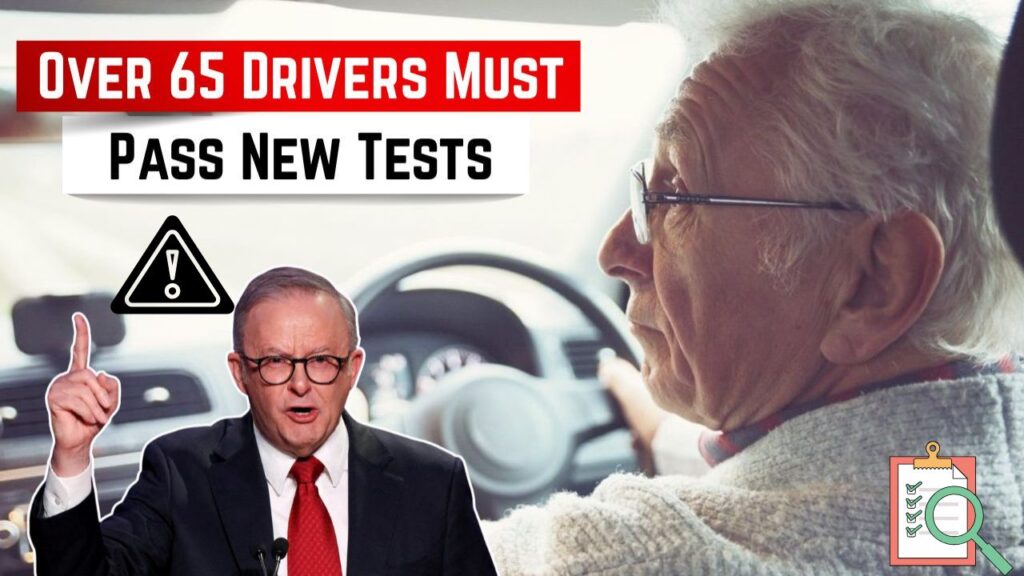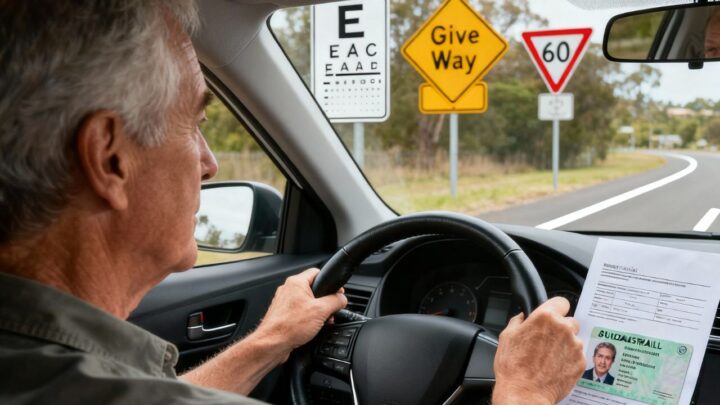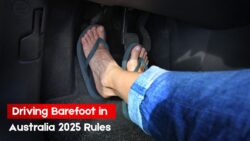Starting in 2025, a new driving test for senior citizens will take effect across Australia, focusing on medical checks, vision tests, and on-road assessments. The updated rules are designed to help drivers aged 65 and above continue driving safely while ensuring the roads remain secure for everyone. Under these reforms, seniors can now retain their licences if they meet certain health and performance standards. The government aims to balance road safety with independence for older Australians, offering flexible options and regular testing intervals for those who want to keep driving confidently.

Medical and Vision Test Rules for Senior Drivers in Australia
From 2025, all drivers aged 65 and above will need to pass a medical fitness test and a vision screening before renewing their licences. These evaluations ensure that older drivers are fit to handle changing traffic conditions and maintain quick response times. The new policy applies across all Australian states, with each region following uniform standards. Doctors will assess overall health, reflexes, and mental alertness, while optometrists check for safe visual range and clarity. If a senior meets these criteria, their licence can be renewed without restrictions for up to three years.
On-Road Assessment and Renewal Options for Over-65 Drivers
Alongside health checks, the on-road assessment will now be a critical part of the senior driver renewal process. Conducted by accredited assessors, this test focuses on practical driving skills — such as lane control, reaction time, and decision-making at intersections. Drivers who demonstrate safe performance can keep their full licence, while those needing improvement may receive conditional licences allowing limited driving zones or hours. The government’s goal is not to restrict mobility but to ensure seniors drive safely without putting themselves or others at risk on Australian roads.
How States Are Implementing the New 2025 Driving Standards
Each Australian state and territory is introducing slightly modified versions of the senior driver policy to suit local needs. For instance, New South Wales and Victoria require on-road tests every two years after 75, while Queensland and Western Australia extend it to age 80. The rollout will be monitored closely by transport authorities, with reminders and support sent to eligible seniors before renewal. Many regions also provide online booking options and free preparation guides to help drivers practice ahead of their scheduled assessments.
| Age Group | Test Type | Frequency | Licence Duration | Renewal Requirement |
|---|---|---|---|---|
| 65–69 years | Medical & Vision | Every 3 years | Up to 3 years | Doctor’s certificate |
| 70–74 years | Medical + Vision | Every 2 years | Up to 2 years | Optometrist report |
| 75–79 years | Medical + On-Road | Every 2 years | Up to 2 years | Driving assessment |
| 80+ years | Medical + On-Road | Every year | 1 year | Annual review |

Why the 2025 Senior Driving Test Matters for Road Safety
The new senior driving test aims to protect both older Australians and the public. By making regular assessments mandatory, the system helps identify health issues early and ensures only capable drivers remain on the road. These reforms are part of a broader road safety initiative targeting reduced accident rates among elderly motorists. While it might sound strict, the policy emphasizes compassion — helping seniors stay independent longer without compromising safety. With medical and on-road support, many drivers can continue enjoying their freedom confidently well into their 80s.
Who needs to take the new senior driving test?
All Australian drivers aged 65 and above will be required to take periodic medical and driving assessments.
Can seniors renew their licence online?
Yes, seniors who meet health and safety standards can renew their licences online through their state’s transport portal.
Are vision and medical tests mandatory?
Yes, both are compulsory for seniors before licence renewal to ensure fitness for driving.
Will seniors lose their licence if they fail the test?
No, they may be offered restricted licences allowing limited driving hours or areas instead of full cancellation.





